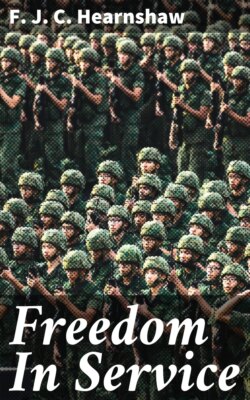Читать книгу Freedom In Service - F. J. C. Hearnshaw - Страница 20
На сайте Литреса книга снята с продажи.
II. THE TERM "LIBERTY"
ОглавлениеTable of Contents
There can be no doubt that in this country, as in America, the term "liberty" enjoys much popularity. Sir John Seeley has remarked that just as "its unlimited generality" makes it "delightful to poets," so its harmonious sound is so grateful to the ears of the public at large that "if a political speech did not frequently mention liberty," no one would "know what to make of it or where to applaud."[25] Matthew Arnold goes so far as to speak of "our worship of freedom," and to depict liberty as the object of a fanatical semi-religious adoration.[26] But as a rule where an Englishman adores he does not define, and if one asks the common devotee of liberty what he understands by the abstraction before which he prostrates himself, one generally requires but a small portion of the dialectic subtlety of Socrates to involve him in a hopeless tangle of contradictions. He can no more define liberty than he can locate his soul. Mr. D. G. Ritchie truly says: "Many crimes have been done, and a still greater amount of nonsense talked in the name of liberty."[27] Seeley, with as much justice as pungency, asserts that some writers "teach us to call by the name of liberty whatever in politics we want," and so lead us to disguise our selfishness and cowardice in the stolen garb of moral principle.[28] At any rate, there is urgent need that before we either support or oppose any practical political measure in the name of liberty, we should clear our minds of confusion, and should reach an understanding of what precisely we mean by this vast and vague expression. It will be found, I think, upon examination, that the term "liberty," as employed in the sphere of politics, has four distinct connotations. I hope to show that in no one of these four senses is liberty incompatible with the compulsory element implicit in the principle of national service.
